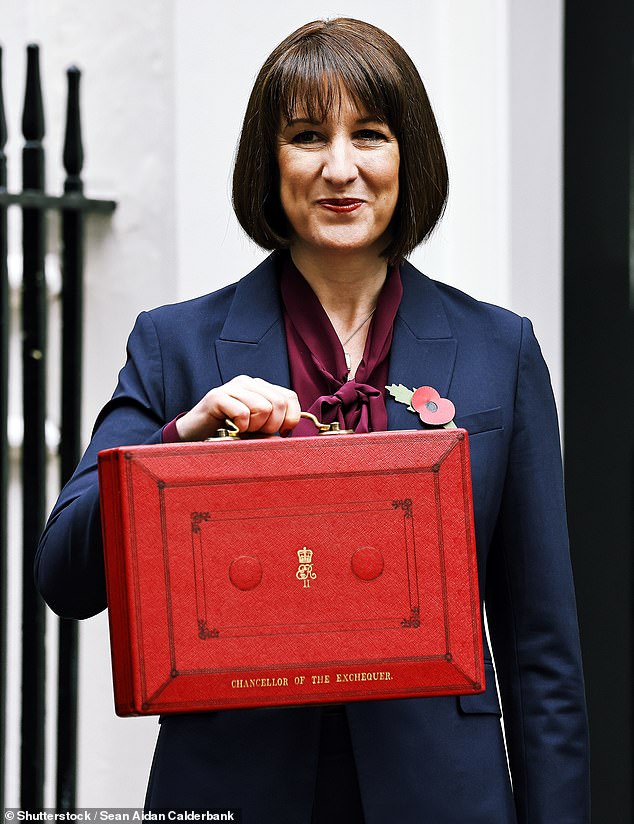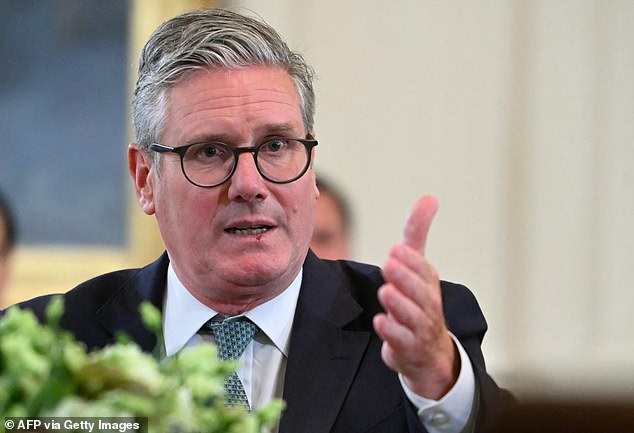The chickens are coming home to roost. When Rachel Reeves broke the Labour election pledge not to raise national insurance, she was warned the £25 billion tax raid on business would push up prices and cost jobs.
She did it anyway. Official figures last week showed that 206,000 jobs have been lost since the election.
Now we have inflation roaring back as companies push up prices to deal with the extra costs they face as a result of the Chancellor’s growth-sapping, job-destroying policies.
Ms Reeves used to boast that Britain was the fastest-growing economy in the G7.
Not any more.
But at 3.8 per cent, we do have the highest inflation rate of the seven major developed economies. In September last year, ahead of the Budget, it was 1.7 per cent.
The Left-leaning Resolution Foundation says that UK inflation ‘looks increasingly like an international outlier’.
The bond markets are watching – and don’t like what they see.

When Rachel Reeves broke the Labour election pledge not to raise national insurance, she was warned the £25 billion tax raid on business would push up prices and cost jobs

Official figures last week showed that 206,000 jobs have been lost since the election
Not only is the inflation genie bursting back out of the bottle, and the economy floundering, but our national debt is soaring and, in abandoning welfare cuts, Labour has shown it has no plan to bring the public finances back under control.
As a result, Britain faces the steepest borrowing costs in the G7, with the 30-year bond yield at its highest level since 1998.
That means the United Kingdom Government pays more to borrow on the international money markets than the United States, Germany, France, Italy, Japan and Canada.
In other words, lending to Britain is seen as a riskier bet than lending to any of these other countries.
The spike in inflation will not help as a large portion of UK Government debt is index-linked – meaning payments rise as inflation goes up.
There are very real consequences for families across the country.
Inflation is a menace that eats into the income of workers and pensioners alike, devastating living standards along the way. Yes, average prices may have been pushed a little higher by the ‘Oasis effect’ as fans paid through the nose for hotel rooms around concert venues.
But this is also about parents struggling to pay for school uniforms, families putting the weekly supermarket shop on the credit card to make sure they have enough money to pay household bills, and then worrying about how they’ll pay for Christmas after pushing the boat out on even a modest summer holiday.
Rail fares – which are linked to inflation – now look set to rise by 5.8 per cent next year.
There is also the prospect of energy bills rising again at the start of October – little over a month away – just in time for winter.
It might seem a long way off, but it will come round soon enough for those feeling the pinch.
Another Reeves boast is that interest rates have come down five times since Labour came to office, from an annual rate of 5.25 per cent to four per cent.
But while she seeks to take credit for this, how much lower might interest rates now be had the Chancellor not driven up prices with her inflationary rises in national insurance and the minimum wage?
With inflation nearly double the Bank of England’s two per cent target, hopes of a further interest rate cut this year are fading fast.
Instead, families and businesses are braced for another punishing round of tax rises in the autumn.
The squeeze has only just begun.
Share or comment on this article:
HUGO DUNCAN: The genie has burst out of the bottle – and it’s all too clear who is to blame